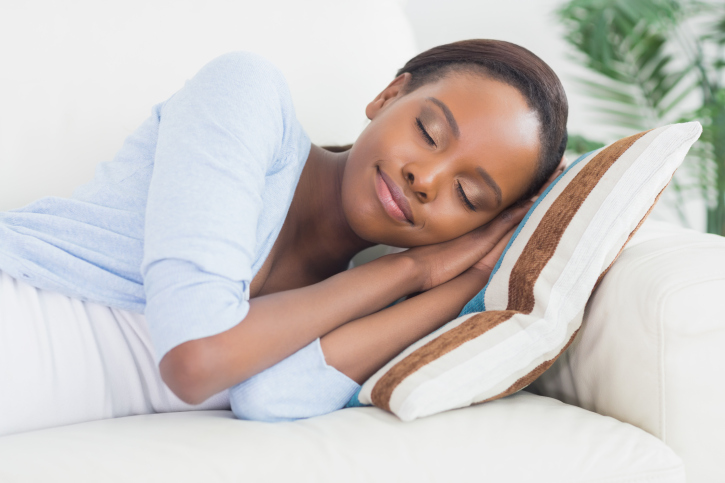 During these very stressful times, it can be challenging to fall asleep or stay asleep. Some minor adjustments to your diet might be exactly what you need. Adding these foods to your diet may help to increase your odds of a successful slumber.
During these very stressful times, it can be challenging to fall asleep or stay asleep. Some minor adjustments to your diet might be exactly what you need. Adding these foods to your diet may help to increase your odds of a successful slumber.
1. Almonds
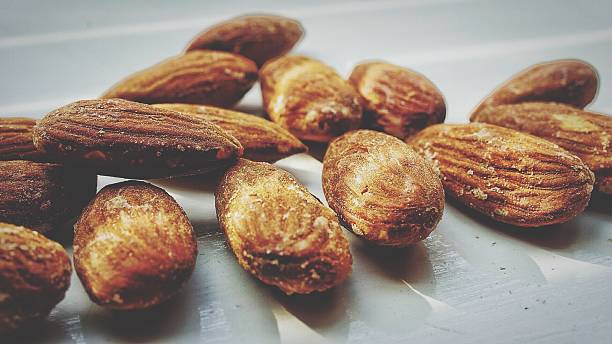
Containing both tryptophan and magnesium – a mineral needed for sleep quality – this healthy snack may reduce muscle and nerve function, as well as steady your heart rhythm, naturally. A study published in the Journal of Orthomolecular Medicine found that when the body’s magnesium levels are too low, it makes it harder to stay asleep. In other words, you’ll be sleeping like a baby in no time!
2. Bananas

Well-known for being rich in magnesium and potassium, bananas help relax overstressed muscles. Meanwhile, tryptophan, which converts to serotonin and melatonin – the brain's key calming hormones – increases relaxation.
3. Cherries
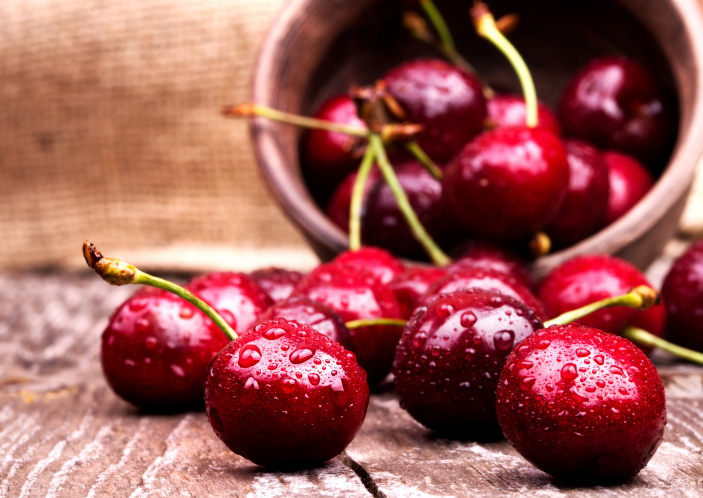
A glass of cherry juice may be all you need to ease your way into a deep sleep, researchers from the University of Pennsylvania and University of Rochester say. Findings suggest that cherries -- tart varieties -- naturally boost the body's supply of melatonin, which aids people struggling with insomnia. While the jury is still out on just how much juice or how many cherries one must eat in order to reap the benefit, experts claim that sipping a glass of cherry juice or indulging in a serving of fresh, frozen or dried cherries before bedtime won’t hurt anyone.
RELATED: 5 Foods That Help You Sleep
4. Chamomile Tea
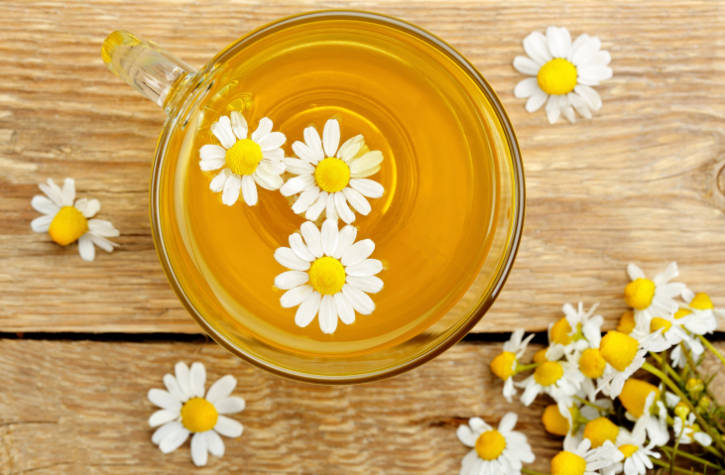
A cup of stress-busting chamomile tea before bed (sans caffeine) will increase levels of glycine, a chemical that relaxes nerves and muscles – much like a mild sedative. Other calming options include ginger and peppermint teas.
5. Dark Chocolate

It’s no secret that chocolate (containing 70 percent cocoa) contains ample amounts of serotonin, which relaxes your body and mind. Not to mention the other health benefits dark chocolate has to offer: lowers blood pressure and reduces the risk of disease.
6. Fish

Most fish -- especially salmon, halibut and tuna – are rich in vitamin B6, which is needed to make melatonin (a sleep-inducing hormone).
7. Fortified Cereals
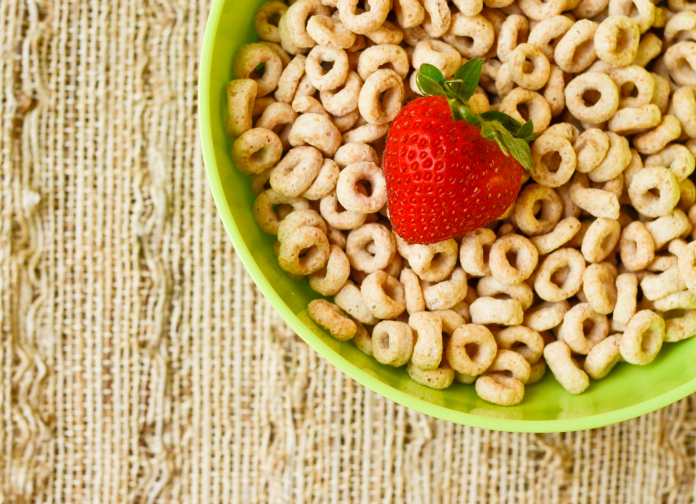
According to the National Sleep Foundation, a bowl of cereal before bed may help you ease into a deep sleep. Opt for fortified cereals that boast vitamin B6 – a vitamin essential for producing melatonin (a sleep-inducing hormone).
8. Kale
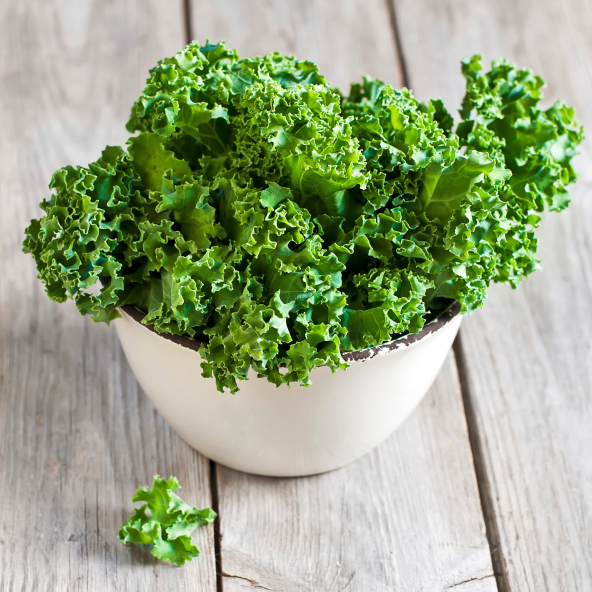
Dairy products are well-known calcium-rich foods. But, so are dark, leafy veggies, like this superfood (and collard greens). According to research, calcium deficiency may make it difficult to fall asleep. So, eat up!
9. Whole Grains

While any kind of bread will work, wheat is best. Think bulgur, barley and other whole-grain varieties which boast magnesium. While it’s true, carbs tend to spike blood sugar levels. Whole grains contain far more nutrients that won’t cause you to crash like refined grains. Not to mention, carbohydrates raise brain levels of tryptophan, which helps bring on natural calming effects, induce sleep, combat anxiety, and burn body fat.
10. Yogurt
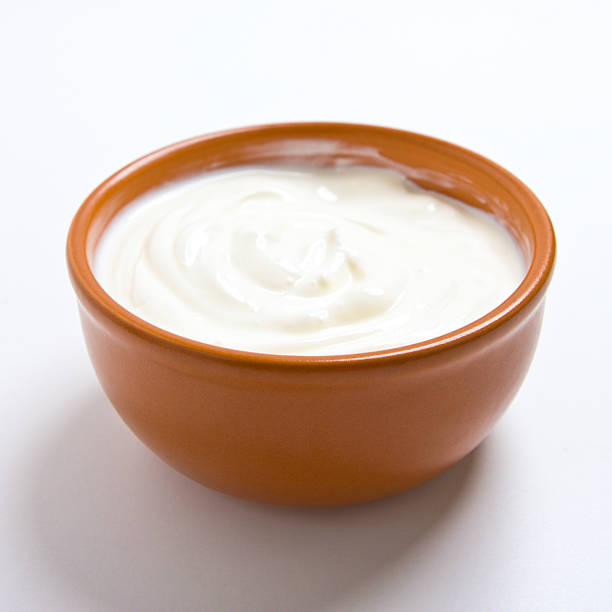
Much like a warm glass of milk, yogurt contains lots of calcium. Studies suggest that "calcium helps the brain use the amino acid tryptophan to manufacture the sleep-inducing substance melatonin. This explains why dairy products, which contain both tryptophan and calcium, are one of the top sleep-inducing foods," according to an article published in Medical News Today.
If lack of a good night's sleep is a constant in your life, see your doctor to get to the root cause.
5 More Foods + 4 Tips For Better Sleep 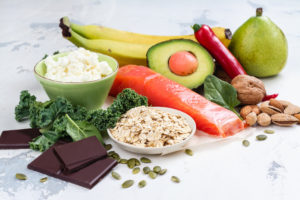
According to the Centers for Disease Control (CDC), one-third of U.S. adults report that they usually get less than the recommended amount of sleep. It might also surprise you to know that not getting enough sleep is linked with many chronic diseases and conditions including type 2 diabetes. Specifically, sleep duration and quality are predictors of levels of hemoglobin A1C, an important marker of blood sugar control.
The amount of sleep you need for good health depends on your age. However, the exact amount of sleep people need at different ages is not known. Therefore, the National Sleep Foundation outlines the minimum, and maximum sleep ranges per day as follows:
-School-Age Children (6-13 years): 9-11 hours
-Teenagers (14-17 years): 8-10 hours
-Younger adults (18-25 years): 7-9 hours
-Adults (26-64 years): 7-9 hours
-Older adults (65+years): 7-8 hours
RELATED: What Happens To Your Body When You Don’t Get Enough Sleep
The amount of sleep you get each day is important, but other aspects of sleep contribute to your health and well-being. Good sleep quality is also essential. The good news is there are compounds found in food such as serotonin, tryptophan, melatonin, calcium, and magnesium that may help you both fall and stay asleep. Eating the foods listed below is a great way to improve the quality and duration of your sleep naturally.
- Nuts: Eating walnuts and almonds is a great way to boost serotonin levels. The powerful nutrient package of thesenuts also includes melatonin that helps regulate the sleeping and waking cycle. Eating walnuts or almonds can increase blood levels of melatonin, helping you sleep more soundly.
- Milk: Warm milk is a frequently used home remedy to promote sleep. Milk contains tryptophan—an amino acid that causes sleepiness. Milk also contains carbohydrates, which makes the tryptophan more available to the brain, making you tired.
- Kiwi: According to the Sleep Foundation, if you have problems sleeping, eating two kiwis before bed can increase your sleep duration by an hour over the course of a month.
- Sweet Potatoes: Sweet potatoes are good sources of potassium, magnesium, and calcium to promote good sleep. Because of their low glycemic index and high fiber content, sweet potatoes are the best type of potato for people with diabetes.
- Jasmine Rice: Jasmine rice is a long-grain variety of rice commonly used in South Asian cooking. Research shows eating jasmine rice as part of the evening meal can shorten the time it takes to fall asleep.
Good sleep habits can also help you get a good night’s sleep. Here are some habits recommended by the CDC to improve your sleep health:
- Be Consistent: Go to bed at the same time each night and get up at the same time each morning, including on the weekends
- Unplug: Make sure your bedroom is quiet, dark, relaxing, and at a comfortable temperature
Remove electronic devices, such as TVs, computers, and smartphones, from the bedroom - Watch What You Consume: Avoid large meals, caffeine, and alcohol before bedtime.
- Get Active: Get some exercise. Being physically active during the day can help you fall asleep more easily at night.

Constance Brown-Riggs, is a registered dietitian, certified diabetes educator, national speaker and author of the Diabetes Guide to Enjoying Foods of the World, a convenient guide to help people with diabetes enjoy all the flavors of the world while still following a healthy meal plan. Follow Constance on social media @eatingsoulfully









